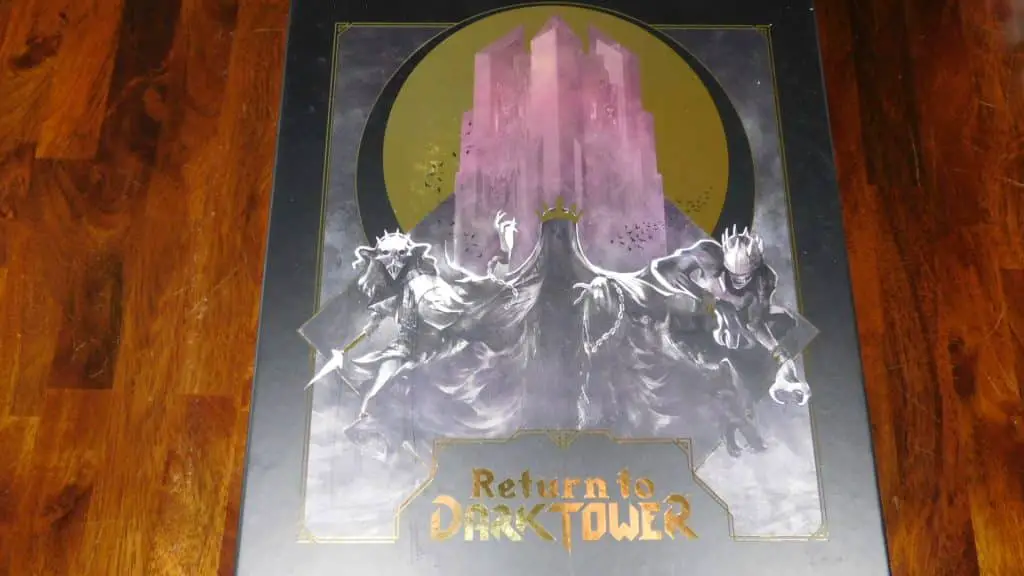Maybe you, like me, have spent a lot of money on board games, so much money that it’s easy to say, “a lot of money,” than it is to figure out how much money that phrase is referring to. While we should work on spending more wisely, it’s also worth asking if board games are becoming too expensive. So, are they?
Yes, board games are becoming too expensive. More and more board games are using more components and higher-quality components, which makes them nicer but also makes them more expensive. In the end, while this is a good thing, it’s also a costly one that makes them harder and harder to afford.
Table of Contents
My Story With Expensive Board Games

When I first got into board games around 2011 (this is an estimate as I don’t know for sure when I got into board games), I was buying games like Cyclades, Mansions Of Madness 1st Edition, Libertalia, and Infiltration. Mansions and Cyclades were the most expensive, coming in around $50-$60. Libertalia was around $40 and Infiltration was around $25.
Compare that with Mansions Of Madness 2nd Edition, which costs $80, and Libertalia: Winds Of Galecrest, which costs $55. Going based on these numbers, it seems to be that board games are becoming more expensive. These numbers don’t tell the full story though, so let’s take a look at some of the most popular games that have come out in the last several years.
A Quick Look At The Price Of Popular Games
Here’s a lit of some of the most popular games to come out in the last several years:
- Oath: Chronicles Of Empire & Exile
- Descent: Legends Of The Dark
- Gloomhaven
- Return To Dark Tower
- Zombicide: Marvel Zombies
- Cthulhu: Death May Die
- Root
- Scythe
- Everdell
- The Pandemic Legacy series (Season 0, Season 1, and Season 2)
- Star Wars: Rebellion
- Ark Nova
- Great Western Trail
This list could go on for a long time, but we’ll stop here. The cheapest among them is Great Western Trail, which is between $50 and $55.
The next cheapest games are Root, Scythe, Everdell, and Ark Nova, which come in around $60. After that, you’re looking at the Pandemic Legacy series (Season 0, Season 1, and Season 2), Cthulhu: Death May Die, and Star Wars: Rebellion. All of those sit firmly in the $70-$90 range.
Then you have games like Gloomhaven, Oath: Chronicles of Empire & Exile, Descent: Legends of the Dark, and Return To Dark Tower. These games all sit over $100 with Return To Dark Tower being closer to $200. Finally, you have Zombicide: Marvel Zombies. That had a low pledge of $130 on Kickstarter and a high pledge of $615 if you wanted all content.
I have owned or currently own Return To Dark Tower, Gloomhaven, Root, and Scythe. At one time or another, I have wanted to own the Pandemic Legacy series, Star Wars: Rebellion, Descent: Legends of the Dark, and Oath: Chronicles of Empire & Exile. Combined, all those games I’ve owned or want to own would cost me around $800.
$800 for 8 games, which gives us an average of $100 per game.
I’ve Spent Way Too Much On Board Games
What’s interesting is the games I just mentioned aren’t even the most expensive games I own, have owned, or have wanted to own. That award goes to Kingdom Death, which I’ve spent well over $2,000 on at this point, maybe even over $3,000.
That’s not to mention that I currently own over 200 games, many of which have expansions. I’m going, to be honest, and say I don’t want to do the math on all of that. I probably should. Although I’ve gotten better at buying games, that would help even more.
When writing those numbers out, I feel like I have wasted a ton of money. I love board games. That’s not going to change. But when you get even just a glimpse into how much money you’re pouring into them, you realize board games are really, really expensive.
I haven’t even included numbers for board game accessories, deluxe editions, tables, chairs, food, drinks, and so on.
Let’s take a moment and look at these numbers in context though. For example, video games have constantly been decried for greedily trying to suck money out of their customers. Are they as bad as board games then?
Some Context On Expensiveness With Video Games
Video games largely have the same prices: $60 for physical releases on the PS4, Xbox One, and Switch and $70 for PS5 and Xbox Series X games. There’s also a range of costs for PC and digital games, all the way from free to the same cost as the aforementioned systems.
Why have video games been able to stay so consistent? They haven’t always as with new consoles there comes the potential for price increases with games. PS2 games cost only $50, for example.
This also doesn’t take into account the rise of in-game transactions. These are things such as microtransactions, season passes, battle passes, downloadable content (DLC), loot boxes, in-game stores, and more. With those in mind, video game costs can balloon to hundreds and thousands of dollars.
Theoretically, a person could endlessly spend money on additional content for the games. As long as game companies keep pushing out more content or making it difficult to get that content, the person could keep spending money.
That’s not possible with board game content. Even a game like Magic: The Gathering, which sees people buying packs in the hopes of getting certain cards (AKA video game loot boxes AKA gambling), eventually there’s an end. Plus, unlike video games, you do physically own something that you can then resell (and sometimes those resale values can get quite high). That’s not always the case with video games.
By the way, I wholeheartedly do not support any kind of video game monetization. I’m also, although I like Magic: The Gathering, not a fan of games that use a gambling model as it does. I know there are arguments to be made for this, but I’ve seen far too much damage done because of monetization like this.
What About Video Game Sales Versus Board Game Sales?
So, while it seems like video games can end up being the way, way more expensive than board games, there’s a catch here that gives them a little edge when it comes to price. That catch is sales.
Video games (with the exception of many Nintendo games) tend to go down in price over time. For example, say a game starts off at $60. Even if it’s popular, as the months pass, it’s common to see that game listed for $40. Give it enough time and you can even see that game listed for $20.
Occasionally, it gets even better with sales on digital versions of those games. Those can get incredibly good with games going down to $10 or lower.
I have yet to see anything like this with board games, and there’s one good reason for this: components. The components in a board game keep it from rarely getting incredible sales as you see in video games. It just is the way it is, unfortunately.
What Goes Into The Cost Of Board Games
Board games are comprised of some or all of the following things: rulebook or rulebooks, tokens, miniatures, standees, boards, tiles, inserts, trays, or dividers, meeples, cubes, specialty components, cards, dice, and more. Sometimes they also include apps.
Even with apps, the vast majority of board game components are physical things. Things that have to be tested and made, shipped, distributed, and sold. Materials cost money even in bulk and especially when there are shortages. That’s not to mention the fact that for every component that is unique in some way, a unique mold has to be created so that component can be produced.
In the end, it’s difficult for board games to go on sale or to be cheaper because components are expensive whereas video games are all digital or come on a disc in a plastic case and nothing else.
So, Are Board Games Becoming Too Expensive?
Yes, they are. It’s not the fact that they’re mostly physical things that are the problem, it’s the fact that game companies are investing more and more money into creating a spectacle with those physical things that are the problem. And it’s really easy to get sucked into that spectacle. I’m no exception to this, obviously!
For example, I struggled with whether or not I wanted to back Zombicide: Marvel Zombies when it was on Kickstarter. On the pros side, it had great-looking miniatures, a great concept, tons of content, was made by a company with a good track record, and I’d enjoyed playing other Zombicide games when I’d played them in the past.
An Example Of Pros And Cons When Buying An Expensive Board Game
On the cons side, the game was incredibly simple to be a $100+ or $600+ game. Also, I had a problem with how the heroes’ powers worked. They just didn’t feel like they were supposed to.
For example, if Captain America threw his shield, it should feel like the shield is bouncing around the board or bashing into enemies, and it just didn’t feel that way. In the end, it was one of my rare victories in spending money on board games that I didn’t back that game. I held off and forgot about it enough until the time had passed to back it.
Here’s the thing though, making board games more complicated isn’t the answer either. A game being complicated doesn’t automatically add more value. If that were true, then euro games would be far more expensive than non-euro games, but that just isn’t the case.
Making board games more thematic isn’t the answer either. Making a game where it feels like Captain America’s shield is bashing into enemies would be great, but that shouldn’t drive up the cost. Having a great miniature of Captain America would be awesome too, but do I need that at the cost it’s going to bring to the game?
Honestly? Most of the time, no. The only reason I want more cost in a board game is if it’s absolutely necessary to have that cost, and the only reason I can see is if it improves the experience of the game.
What Improves Board Game Experiences
A board game experience is a combination of a collection of things: the components, the rules, the theme, the people you’re playing with, where you’re playing it, how you feel when you’re playing it, and so on. Some of those you can control, and some of those you can’t.
But when it comes to the board game itself, it should all be in the service of a better board game experience, not in service of the spectacle. Zombicide: Marvel Zombies is a game that, yes, is very cool with the miniatures and theme it has, but what are they really adding to the game that it didn’t have before? To me, it’s the equivalent of all those rereleases of the original Star Wars trilogy with the extra CGI moments stuffed in.
They were nice to look at (eventually) but added absolutely nothing to the story or the experience. If anything, they took away from it by distracting people from an already well-shot and well-designed scene. Star Wars is about Luke and his friends’ journey to defeat Darth Vader and the empire. If something is in those movies that isn’t adding to that, developing that, improving that, it doesn’t need to be in there.
The same is true of board games.
One Last Thought
My final thought on all of this, rambling though I’ve been so far, is that more expensive board games mean fewer and fewer people can enjoy the hobby. There are so many cool games out there, so why not make them as accessible as possible to as many people as possible?
I want people to have the same experiences I have had, I want to have the same experiences other people have had! I don’t want anyone to be excluded regardless of race, gender, religion, finances, or anything else!
So, although I love spectacle as much as anyone else, board game companies, if you’re reading this, please find ways to make board games cheaper so that we can all enjoy them together. Thank you.
Did You Know?
(Each time you refresh the page you will get a new “Did You Know” fact!)
Did you know that Terror Below has nothing to do with Stone Age, but it’s a game inspired by the Tremors franchise? Interested? Well, then take a look at our review of Terror Below here!
Conclusion: Are Board Games Becoming Too Expensive?
So, there you have it. When it comes to if board games are becoming too expensive, the answer is yes. There are understandable reasons as to why, but that doesn’t make it any less true, nor that we should start moving in a cheaper direction.
What do you think though? Do you think board games are too expensive or do you think it matters? Let me know your thoughts and why in the comments below!
And, as always, keep on gaming, fellow board gamers.

